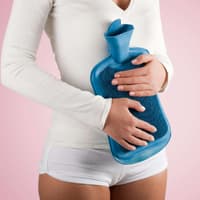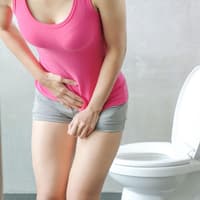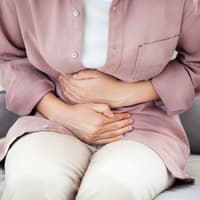
Causes of cystitis
Wonderful: you can finally spend the whole day in the outdoor pool again and sit in the beer garden late into the night. But be careful: not changing after swimming out of laziness and letting the sun dry your wet bikini can quickly take revenge in the form of a cold. You also run the risk of this if you walk around at night in a thin flag. Or if you spend time in heavily air-conditioned rooms. This is because cold and dampness accelerate bladder infections: This reduces blood flow to the mucous membranes and weakens the immune system, making it easier for bacteria to spread through the bladder and urethra. The consequences of being unreasonable: abdominal cramps, pain when urinating and a constant urge to urinate. This can spoil the best of summers. Some women are even affected more than once in a season. But it doesn't have to come to that. Fortunately, there are ways to prevent bladder inflammation.
Prevent bladder inflammation: always keep your abdomen warm
As a preventative measure, it helps to change your swimsuit in good time, wear stockings or thinner tights in air-conditioned areas and wrap up well in the evening when outdoors. Many garden restaurants offer their guests woollen blankets so that they don't catch a cold. You should also always empty your bladder completely.
What to do if you have cystitis? Natural sugar substances and herbal teas
If you have the feeling that something is coming on: drink plenty of water. Or take drinking granules with the active ingredient D-mannose, a type of sugar that also occurs naturally in the bladder mucosa. D-mannose inhibits bacteria in advance, coats and binds them and thus prevents the germs from attaching to the bladder wall. They are then flushed out during urination. However, D-mannose also has a supportive effect if you do catch it.
In this case, you should allow yourself to rest and keep your abdomen warm, for example with a good old hot water bottle - this promotes blood circulation and has a soothing effect. You should also drink plenty of fluids, preferably two to three liters, to flush out the bacteria. An old household remedy is bearberry leaf tea (pharmacy), which has an antibacterial effect. Diuretic teas made from birch leaves, nettle or field horsetail are also helpful.
What to do if natural remedies no longer help with cystitis?
If the symptoms do not go away after three days, or if you have severe pain or a fever, you should see a doctor. Since the treatment guidelines were updated, doctors have been advised to use antibiotics sparingly. Instead, the classic painkiller ibuprofen is prescribed, for example, which also inhibits inflammation and was almost as successful in a study as the medicine hammer. Various herbal preparations that have antibacterial, anti-inflammatory, pain-relieving and antispasmodic effects have also proved effective. Only in severe cases - severe infections and high fever - is antibiotic therapy unfortunately unavoidable.
You may also be interested in this:
Treating cystitis without antibiotics: It works with these remedies
What helps with cystitis?
Researching the causes: is cystitis contagious?
Constant cystitis! What to do if the symptoms persist
Cystitis during pregnancy: dangerous for mother and child
Are antibiotics really useful for cystitis?






